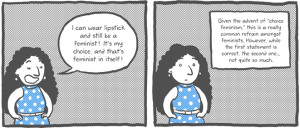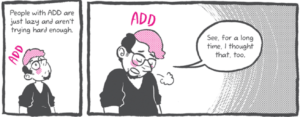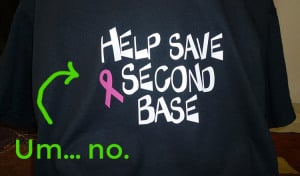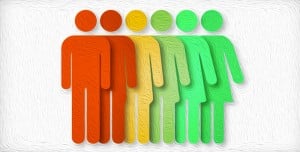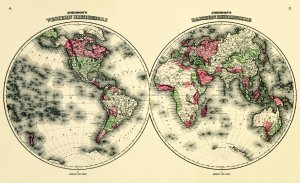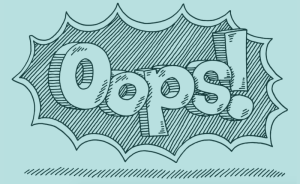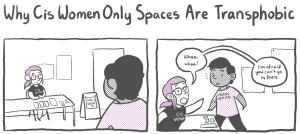
A person smiling with their arms outstretched, sitting in a bed with white linens.
“I had sex last night,” I texted a friend the other day, punctuating the announcement with a clapping emoji and a high-five emoji.
Seconds later, my phone buzzed with the response: “How big was he? I’m dying to know.”
My reply? A shrug emoji.
Because I didn’t mean what he thought I meant by “sex.”
I knew what definition he was referring to. It’s the one I was taught. That’s why there was still that lingering voice in my head saying, “No, you didn’t have sex. He just fingered you. You’re lying” – as well as that self-critical voice chiming in with “and then you went to sleep because you’re SELFISH and BORING.”
Here’s the thing, though: Lately, I’ve been reexamining how I define “sex” – which means I’ve been questioning the idea that any sexual act deserves a “just” in front of it.
When I was 10, I learned what sex was from my Merriam-Webster Dictionary, which said something like what Google tells me now: “sexual activity, including specifically sexual intercourse.”
And “intercourse” is defined as “sexual contact between individuals involving penetration, especially the insertion of a man’s erect penis into a woman’s vagina, typically culminating in orgasm and the ejaculation of semen.”
So, yeah, that was how I first learned what sex was. And it took a lot of conversations to unlearn it.
It wasn’t just the dictionary, of course. I heard the message all around me loud and clear: Sex means putting a penis in a vagina (and note that it wasn’t putting a vagina around a penis – the penis was always the active party).
When girls in school talked about whether or not they’d had sex, they were referring to whether or not they’d done that – and the answer to that question was considered far more significant than whether they’d had oral or manual sex.
The self-help books I read under the covers at night (because I was a fun kid like that) encouraged girls to wait to have sex, and by sex, they also meant penis-in-vagina intercourse (PIV). They didn’t say much at all about anything else.
So, when I got to college and opportunities for hookups were ripe, I decided that since “having sex” was too big a deal outside a relationship, I would just do everything else. Then, I would stay a virgin until I found someone I loved enough to give my virginity away to.
Yup, I had some effed up ideas.
I once took a lot of pride in “remaining a virgin” until age 20. But now, I don’t see it that way. I don’t believe in virginity at all, and I believe I had sex much sooner.
Which brings me back to the other day.
When I told my friend I’d had sex, he assumed I knew “how big he was” because he assumes (as many of us do) that every kind of sex involves a penis. And a vagina. But it doesn’t have to include either.
Now, I think of sex as anything that brings me sexual pleasure. And that can be defined however feels right in each moment. It doesn’t have to involve below-the-belt touching, and it doesn’t even have to be done in person. It’s just a connection with another person that feels sexual.
Anyone else is free to define sex as they wish. But here are some reasons my personal definition has helped free me from the toxic messages I’d internalized about sexuality before.
1. This Definition of Sex Is More Inclusive
The first challenge I heard to the traditional definition of sex stemmed from the LGBTQIA+ community: The problem with defining sex as something that happens between a penis and a vagina is that it only applies to people with penises who have sex with people with vaginas, or vice versa.
This delegitimizes the relationships that LGBTQIA+ people have every day, as well as relationships between cis men and women who don’t prefer PIV sex.
Some people with vaginas, for example, prefer oral or manual stimulation that does not involve a penis. By excluding these people, the traditional definition of sex can also be sexist – because it favors those who get pleasure most easily that way, which often means cisgender men.
The traditional definition of sex is also heteronormative – which means it assumes that sex happens only between a man and a woman. And it’s cissexist, meaning it conflates being a man with having a penis and being a woman with having a vagina.
Conflating genitals with gender and assuming that everyone is a man or a woman erases people who are transgender, non-binary, intersex, and more.
I’m refusing to define sex as something only enjoyed by people like me – that is, people with vaginas who typically sleep with people with penises.
And by doing this, I’m rejecting the notion that the relationships I have are fundamentally different from (and more “normal” than) those between LGBTQIA+ people, and that sex should be defined in a patriarchal and binary way.
2. This Approach Takes the Pressure Off
Unfortunately, the most common prescriptive view of sexuality is that you start off with foreplay and work up to intercourse.
So, previously, when I was doing something considered foreplay, I felt that expectation in the air – and was afraid I’d “lead someone on” if I didn’t meet it. My own consent seemed secondary to this pressure.
Before, whenever I was lying in bed naked with someone, the thought of “Are we going to have sex?” distracted me.
Now, the answer is usually, “We already are. Nothing more needs to happen. The experience is already complete, and it should only go as far as we both want to take it.”
Since I no longer separate one sexual act from the rest, I’m less focused on which one we’re engaged in and more focused on staying in the moment and enjoying whatever we’re doing.
And I expect more respect for my consent from my partners – because I see that if they assume PIV sex is going to happen just because some form of sex is, they’re in the wrong.
3. Expanding the Definition of Sex Has Changed My Conception of Giving and Receiving
When you’re not having a type of sex that involves two participants’ genitals, there’s this idea that one person is giving pleasure and the other is receiving it (this giver/receiver binary is also limited in that it assumes sex can only occur between two people).
We use terms like “giving head” and “blow job” that imply certain sexual acts are favors, and then if we don’t “receive” as much as we “give,” we feel cheated.
So here’s a radical thought: What if we didn’t do anything that we thought of as a job or wanted reciprocation for? What if we only did things we enjoyed so much that the pleasure of doing them was enough of a reward?
When I stopped distinguishing “mutual” sex from “one-sided” sex, I realized all sex should be mutual.
I can get as much out of touching someone as they do, and they can get as much out of touching me as I do.
Along with the guilt I used to feel over not “going all the way” after “leading someone on,” the guilt I’ve felt over “taking” more pleasure than I “give” has lessened. Instead of thinking they did me a favor, I think “we just had sex, and it was awesome – for both parties.”
4. This Change Has Helped Me Stop Slut-Shaming Myself
When I thought of penis-in-vagina intercourse as the act at the top of the sex hierarchy, I put it on a pedestal.
I thought it meant more than anything else. I counted how many people I did it with and thought of the result as my “number,” as if it were a name to mark me.
The number of people we’ve “fooled around” with is made less central to women’s identity than the number of people we’ve “had sex” with. Unfortunately, the thought of the latter going up scares me, but I find the former less intimidating.
That’s the result of the idea that sex involving a penis is the most significant type a woman can have. Women are divided into two groups – virgin and non-virgin – and the difference between these groups is a penis.
That’s heteronormative and patriarchal as hell.
I don’t advocate this view, but given that it has unfortunately been ingrained in me, defining “sex” differently has helped me stop defining myself by my number of sexual partners.
Suddenly, my “number” is a number I haven’t even kept track of. And learning this has helped me see that I actually don’t need a number at all. I can think about my sexuality, my values, and my relationships just fine without it.
5. My New Perspective Helps Me View My Partners More Clearly
Putting sex as I previously defined it on a pedestal also meant putting the partners I did it with on one.
When I first “lost my virginity,” I believed I subsequently had to be committed to the partner I’d “lost it” to – and I overlooked red flags in the relationship.
I also developed more feelings for people I had PIV sex with than those I did anything else with. I think that’s in part because I’d been taught that it was an expression of love, while other acts weren’t.
And, I hate to admit it, but I also was more likely to see people I’d done less with as disposable – and I cut myself off from the emotional connection we could’ve had.
Letting go of my Hierarchy of Sexual Acts™ has helped me take each interaction at face value and determine what kind of relationship I’ll have with someone based on who they are, who I am, and what we’re looking for – not which body parts have rubbed against each other.
***
Nowadays, a lot of definitions are getting more nebulous. “Relationship,” “family,” and even “person” have broader meanings than they used to. I think that’s awesome.
A subjective human experience can’t be defined in just one way. There are as many definitions of sex as there are people, and everyone’s perspective should be equally valued.
So, my friends can look forward to more “I just had sex” texts – and if they want to know exactly what I mean, they’ll just have to ask. I might even answer in emoji.
[do_widget id=’text-101′]
Suzannah Weiss is a Contributing Writer for Everyday Feminism and a New York-based writer whose work has appeared in The Washington Post, Salon, Seventeen, Buzzfeed, The Huffington Post, Bustle, and more. She holds degrees in Gender and Sexuality Studies, Modern Culture and Media, and Cognitive Neuroscience from Brown University. You can follow her on Twitter @suzannahweiss.
Search our 3000+ articles!
Read our articles about:
Our online racial justice training
Used by hundreds of universities, non-profits, and businesses.
Click to learn more
Most Read Articles
- « Previous
- 1
- …
- 30
- 31
- 32






